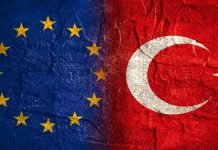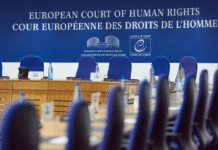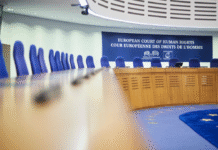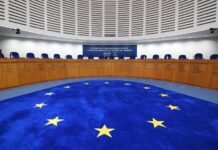Serious backsliding in the respect for democratic standards, the rule of law and fundamental freedoms continued in the absence of an effective checks and balances mechanism, said the European Commission’s “2020 Report on Turkey,” which was published on Tuesday.
According to the report as a candidate country Turkey remained a key partner for the European Union but continued to move away from the EU and backslid in a number of key areas. The Turkish government rejected some of the findings and branded the EU as “prejudiced.”
The report said the adverse impacts of a state of emergency that was declared by the Turkish government in July 2016 after an abortive coup and continued for two years was still felt and continued to significantly impact democracy and fundamental rights. This was due in large part because “Certain legal provisions granting extraordinary powers to the government authorities and retaining several restrictive elements of the emergency rule have been integrated into law.”
Turkey experienced a controversial coup attempt on the night of July 15, 2016 which, according to many, was a false flag aimed at entrenching the authoritarian rule of President Recep Tayyip Erdoğan by rooting out dissidents and eliminating powerful actors such as the military in his desire for absolute power.
The abortive putsch killed 251 people and wounded more than a thousand others. The government declared a state of emergency five days later that gave it sweeping powers.
According to the report, although the legal framework guarantees respect for human rights, legislation and practice in Turkey still need to be brought in line with the European Convention on Human Rights (ECHR) and European Court of Human Rights (ECtHR) case law.
The constitutional architecture that was brought about by a 2017 referendum that introduced a presidential system of governance was also criticized. The centralizing of powers at the level of the presidency without ensuring a sound and effective separation of powers between the executive, legislative and judiciary undermined democratic standards, the rule of law and fundamental freedoms, according to the report. Furthermore, many regulatory authorities and the central bank were directly linked to the presidency as part of the presidential system, undermining their independence.
“In the absence of an effective checks and balances mechanism, the democratic accountability of the executive branch remained limited to elections,” the report said, but criticized the latest elections as “characterized by limited plurality for democratic media and conditions that were objectively not fair to all political parties and candidates in all respects.” The EU said Turkey needed to take steps to improve the broader environment for elections, ensure a level playing field for all candidates and protect the integrity of the electoral process.
In terms of press freedom, the report highlighted the negative role played by the media ownership structure in providing the public with unbiased, pluralistic and independent news. The concentration of media outlets in the hands of a few holding companies with strong ties to the government or dependent on public contracts was mentioned as a threat to a free and independent media. Citing professional media organizations, the report said, “90% of Turkish media is now owned by pro-government groups.”
The unfair and non-transparent distribution of state-sponsored advertising was also cited as a negative factor that further distorted the market and added to the economic pressure on some media outlets from major customers, including the state.
According to the report civil society in Turkey has been under continuous pressure and their space to operate freely has continued to diminish. The Gezi trial and the continued pre-trial detention of businessman and human rights activist Osman Kavala, despite a ruling of the ECtHR calling for his release, were cited as examples that had a deterrent effect on civil society. Administrative difficulties for nongovernmental organizations (NGOs) also continued to hamper civil society activities.
Kavala has been held in detention since November 2017, initially on bogus allegations that he used the 2013 Istanbul Gezi Park protests as a pretext for an attempt to overthrow the government, and later that he was involved in the attempted coup in July 2016.
The report described the situation in Kurdish-majority southeastern Turkey to be “very worrying, despite an improved security environment.” The replacement of democratically elected mayors from the pro-Kurdish Peoples’ Democratic Party (HDP) by centrally appointed trustees and the arrest of elected mayors and party representatives “seriously damaged local democracy,” according to the report.
Turkey and the EU began membership talks in 2005, but the process has come to a standstill in recent years. Countries aspiring to become members must align their laws and legislation in 35 policy areas, or negotiating chapters. EU leaders agreed in 2018 that no new chapters in Turkey’s accession negotiations should be opened or closed.















